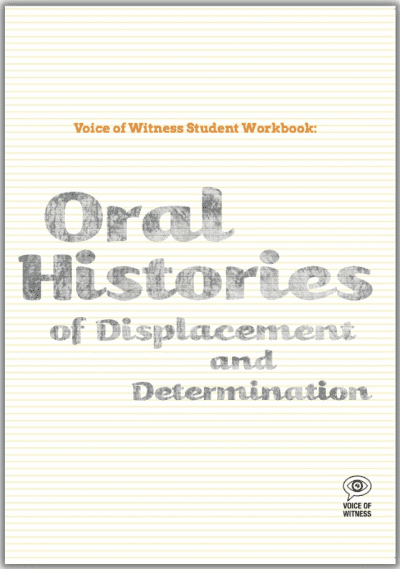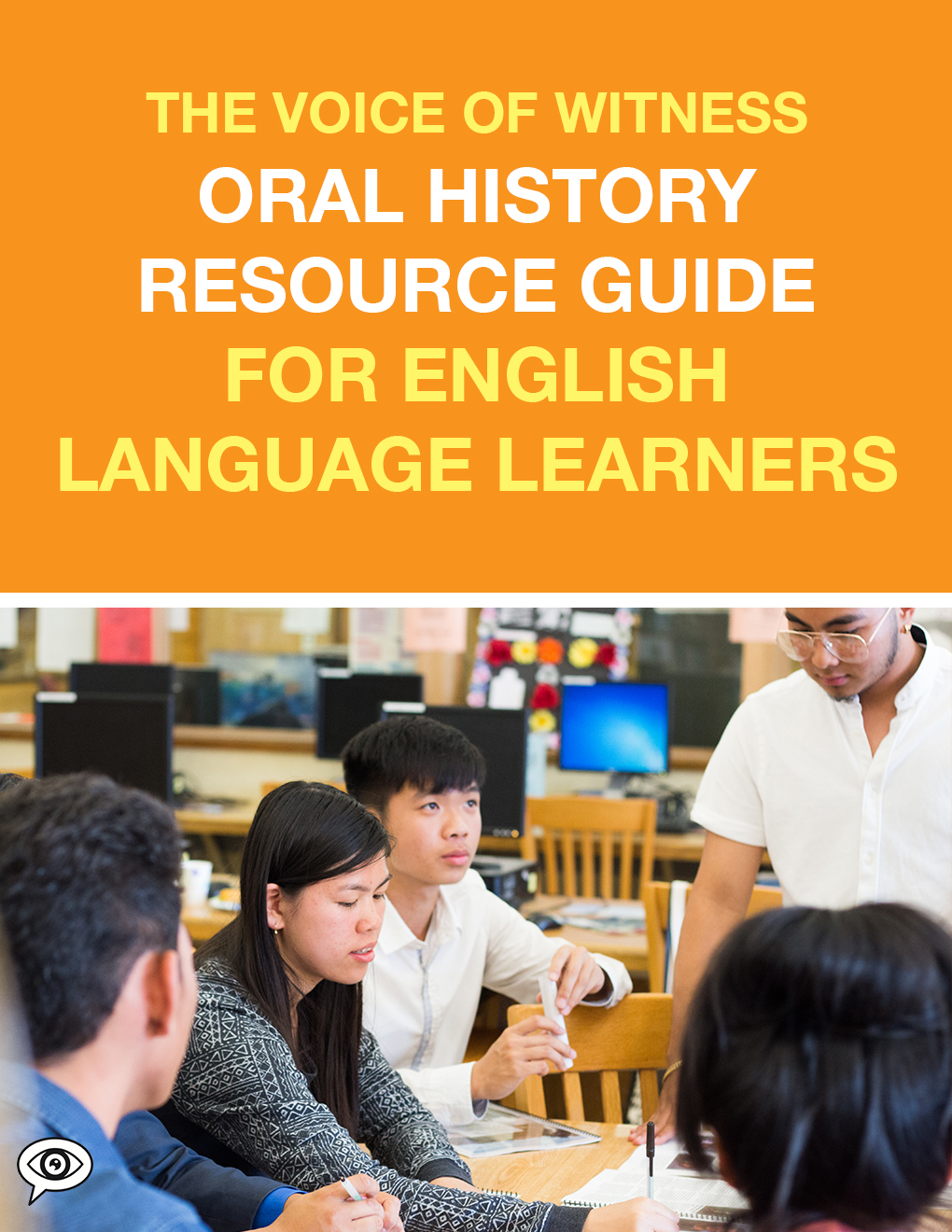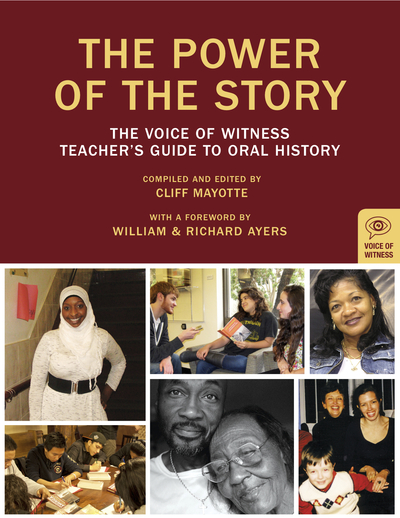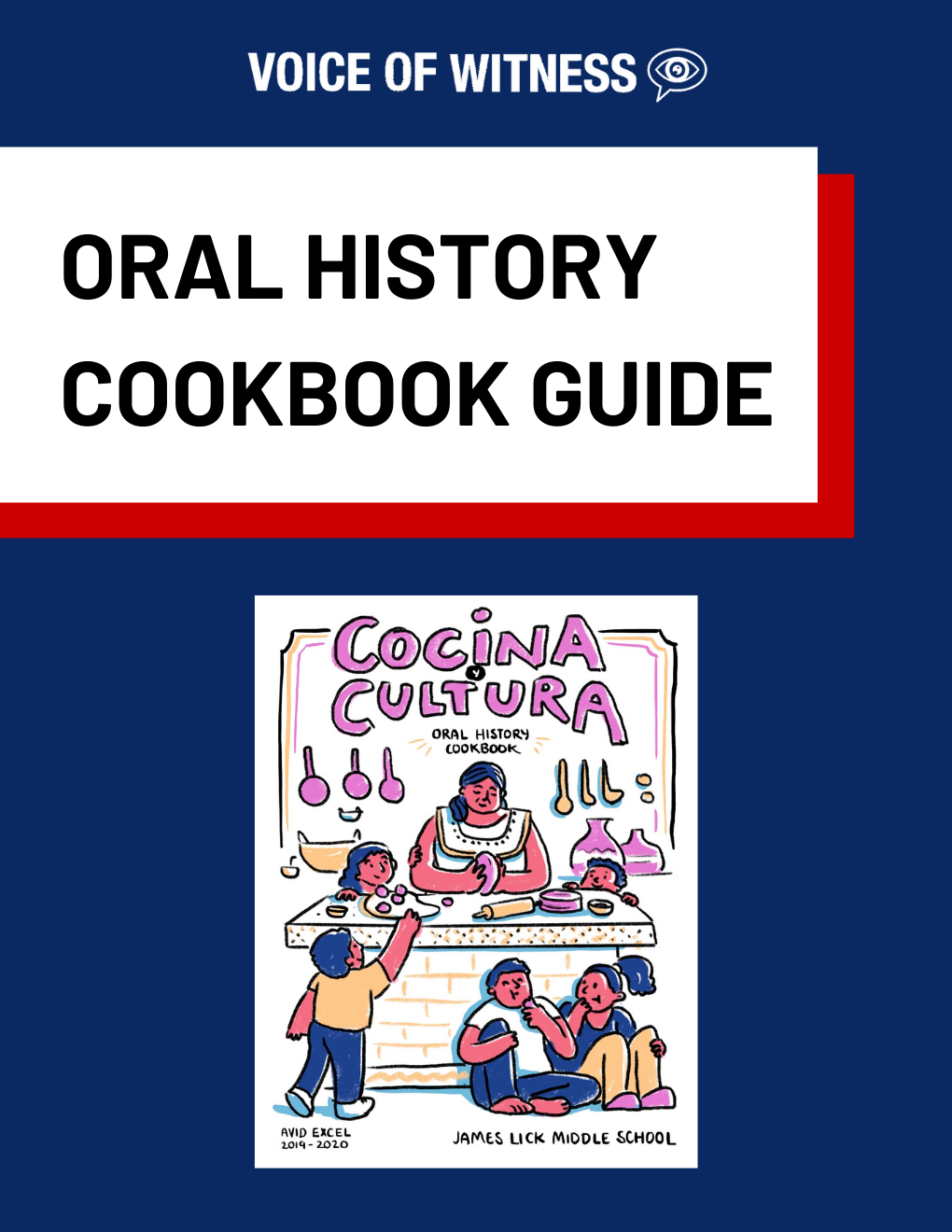Grades 6-8
Voice of Witness Student Workbook: Oral Histories of Displacement and Determination
This VOW Student Workbook features two oral history narratives in an immersive, accessible format. Free lesson plans are also available.
Criminal Justice • Cultural and Personal Identity • English Language Learners • Migration & Displacement • Racial Justice
Oral History Podcast Guide
This guide helps educators create a podcast project for their classroom, where students will conduct and edit oral history interviews.
Democracy and Civic Engagement Lesson Plans
This curricular unit on democracy and civic engagement provides students with an accessible way to learn more about this topic through the lens of personal narrative from a range of voices. These stories create a picture of democracy that goes beyond political parties or voting, making space for students to view it in relation to community power, voice, belonging, and resistance.
Oral History Resource Guide For English Language Learners
Voice of Witness’s education program develops curriculum that directly supports students in migrant, multilingual, and English Language Learner communities. This guide contains activities, handouts, and reading strategies to make oral history accessible to students at all language levels.
Cultural and Personal Identity • Education • English Language Learners • Migration & Displacement • Storytelling Best Practices
The Power of the Story: The Voice of Witness Teacher’s Guide to Oral History
This comprehensive guide allows teachers and students to explore contemporary issues through the transformative power of oral history, and to develop the communication skills necessary for creating vital oral history projects in their own communities.
Oral History Cookbook Guide
Creating an oral history cookbook provides students with the opportunity to connect with their own cultural knowledge while building speaking, listening, reading and writing skills. This guide helps educators facilitate an oral history cookbook project.
Lesson Plan: Introduction to Oral History and Ethical Storytelling
This single lesson plan defines “oral history” and introduces principles for collecting and sharing stories ethically.
Lesson Plan: Journeys and Migration Model Interview
This single lesson plan uses a model interview to demonstrate creating safe and brave spaces by asking open-ended and follow-up questions.








